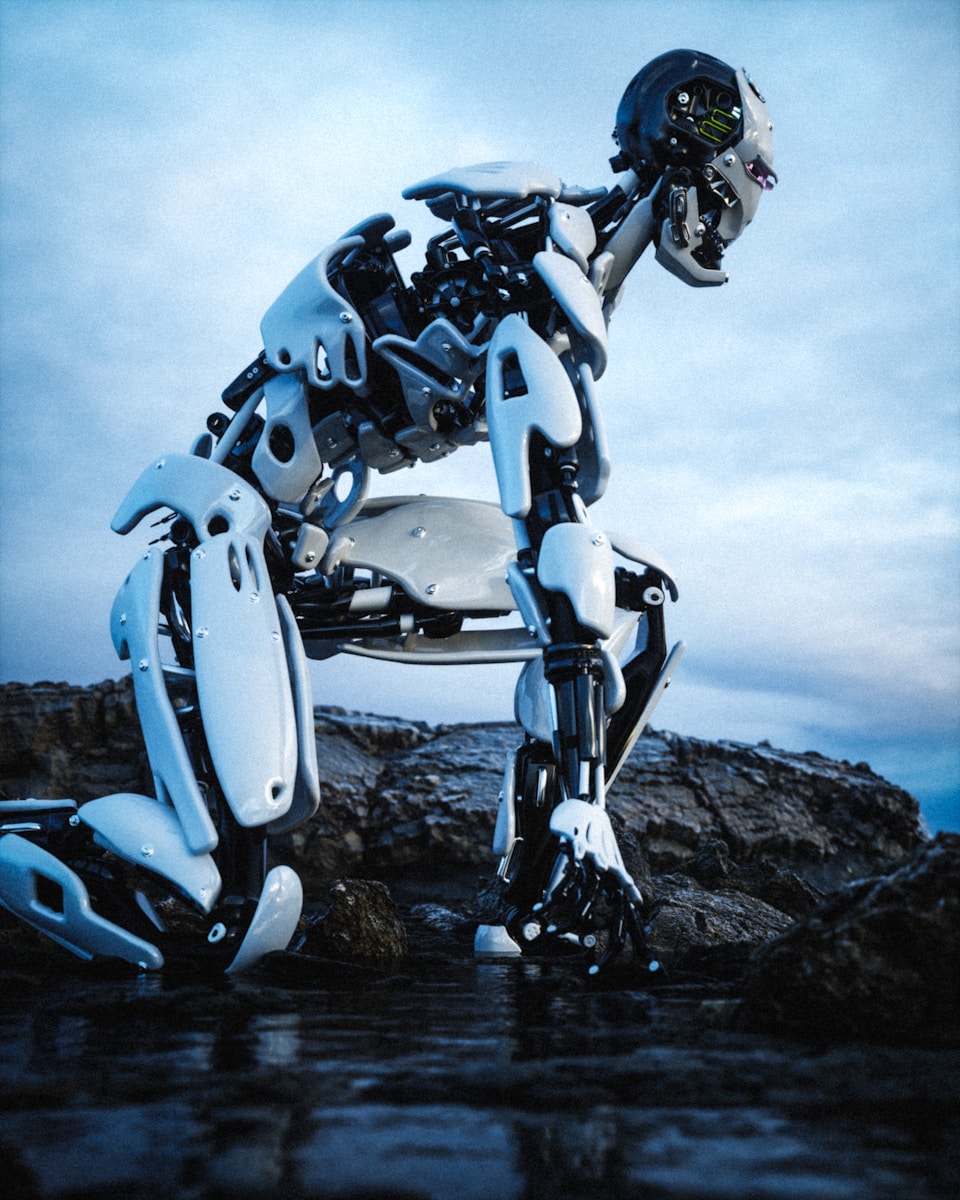The Future of AI in Business Operations
Artificial Intelligence (AI) is no longer a futuristic concept—it’s the driving force reshaping how businesses operate across the world. From automating routine tasks to enhancing decision-making and improving customer experiences, AI is becoming a core component of modern business strategy. As technology continues to evolve, the future of AI in business operations promises to bring even greater efficiency, accuracy, and innovation.
Understanding AI in Business
Artificial Intelligence refers to computer systems capable of performing tasks that normally require human intelligence, such as learning, reasoning, and problem-solving. In business, AI is used to analyze data, predict trends, optimize processes, and even interact with customers. Through tools like machine learning, natural language processing, and robotic process automation, companies can now make smarter, faster decisions with less human intervention.
AI is already present in everyday business operations—think of chatbots handling customer service, predictive analytics guiding marketing campaigns, or automated tools managing supply chains. These applications are just the beginning of what’s possible.
1. Automation and Efficiency
One of the most significant ways AI is transforming business operations is through automation. AI-powered systems can perform repetitive tasks faster and more accurately than humans, freeing employees to focus on creative and strategic work.
For example, in manufacturing, AI-driven robots can assemble products with precision. In finance, automated algorithms handle data entry, fraud detection, and report generation. Even small businesses can benefit from AI tools that automate scheduling, invoicing, and inventory management.
As AI continues to advance, automation will go beyond routine processes to include complex problem-solving and adaptive decision-making, making operations smoother and more efficient than ever.
2. Smarter Decision-Making
AI’s ability to process vast amounts of data in real time allows businesses to make more informed decisions. Predictive analytics tools use historical data to forecast trends and identify potential opportunities or risks. This helps managers plan better, allocate resources effectively, and respond quickly to market changes.
For instance, retail companies use AI to analyze consumer behavior, helping them adjust pricing strategies or stock levels. In healthcare, AI predicts patient needs, helping medical facilities plan resources and improve outcomes. Decision-making is no longer based on guesswork—it’s driven by data, insights, and accuracy.

3. Enhanced Customer Experience
Customer satisfaction lies at the heart of every successful business, and AI is revolutionizing how companies engage with their audiences. Chatbots and virtual assistants provide instant responses to customer inquiries, reducing wait times and improving service quality. Personalized marketing tools powered by AI recommend products and services based on individual preferences, increasing conversion rates.
Moreover, AI analyzes customer feedback and sentiment from social media or surveys, helping businesses understand how customers feel about their brand. This insight enables continuous improvement in products, communication, and overall experience.
In the near future, we can expect AI to deliver hyper-personalized experiences—anticipating customer needs even before they express them.
4. Improved Supply Chain and Logistics
AI plays a vital role in optimizing supply chain operations. By predicting demand, identifying the best delivery routes, and tracking inventory levels in real time, AI ensures that businesses maintain smooth and cost-effective logistics systems.
For example, logistics companies use AI to plan efficient transportation routes, reducing fuel costs and delivery times. Retailers rely on AI to predict product demand and prevent overstocking or shortages. This not only saves money but also improves customer satisfaction by ensuring timely delivery of goods.
As AI integrates with technologies like the Internet of Things (IoT) and blockchain, supply chain management will become more transparent, predictive, and responsive.
5. Human-AI Collaboration
The future of AI in business operations isn’t about replacing humans—it’s about collaboration. AI takes over repetitive and data-heavy tasks, allowing human employees to focus on creativity, strategy, and innovation. This partnership enhances productivity and job satisfaction.
For example, in customer service, AI can handle simple inquiries while human agents tackle more complex issues that require empathy and judgment. In marketing, AI generates insights while humans craft creative campaigns based on those insights. This balance ensures that businesses get the best of both worlds—efficiency from machines and creativity from people.

6. Data Security and Risk Management
AI also strengthens business operations by improving data security. Machine learning algorithms detect unusual patterns or behaviors that may indicate a security threat, helping organizations respond before issues escalate. AI systems can identify vulnerabilities, block cyberattacks, and continuously learn from new threats.
In risk management, AI helps companies anticipate potential disruptions—whether financial, operational, or environmental—by analyzing global data trends. This proactive approach reduces losses and enhances business resilience.
7. The Challenges Ahead
While the benefits of AI are vast, the transition isn’t without challenges. Businesses must address concerns related to data privacy, ethical AI use, and workforce adaptation. Employees will need retraining to work effectively alongside AI technologies. Additionally, businesses must ensure transparency and fairness in AI algorithms to maintain trust.
Governments and organizations are already working to establish guidelines for responsible AI adoption, ensuring innovation continues without compromising ethics or human welfare.
Conclusion: The Road Ahead
The future of AI in business operations is bright, transformative, and full of potential. As AI continues to evolve, it will redefine how companies work, compete, and grow. From automating tasks and enhancing decision-making to improving customer engagement and ensuring security, AI is becoming an essential business ally.
Organizations that embrace AI early will not only streamline their operations but also gain a competitive edge in an increasingly digital economy. The key lies in using AI responsibly—combining technology with human intelligence to create smarter, more sustainable, and customer-driven businesses.
The future of business belongs to those who innovate with purpose—and AI is the tool leading that future.
